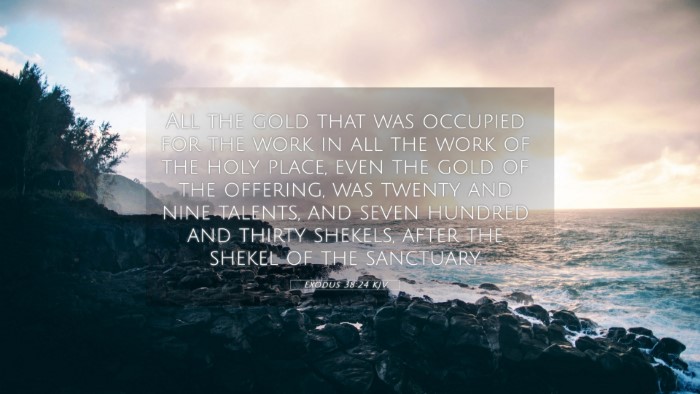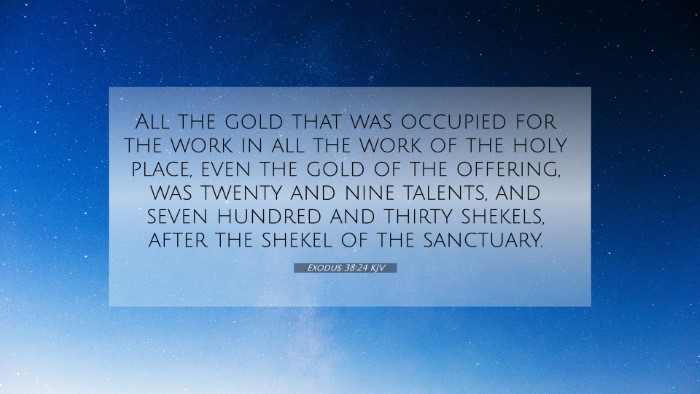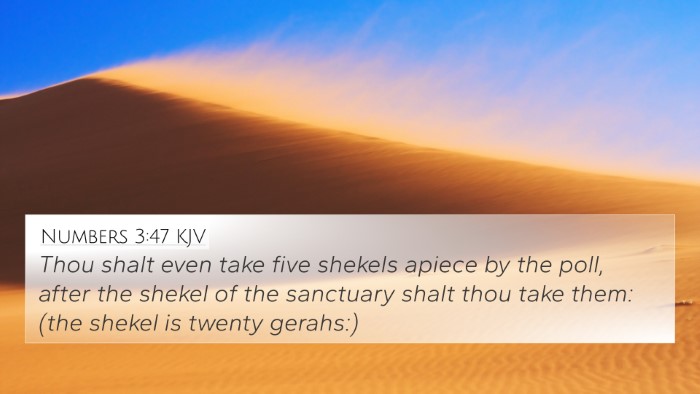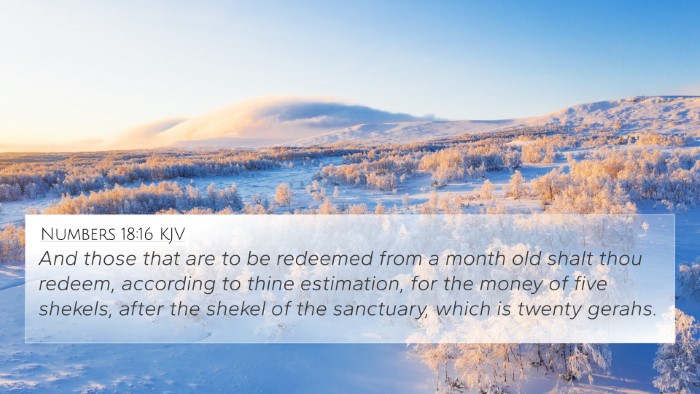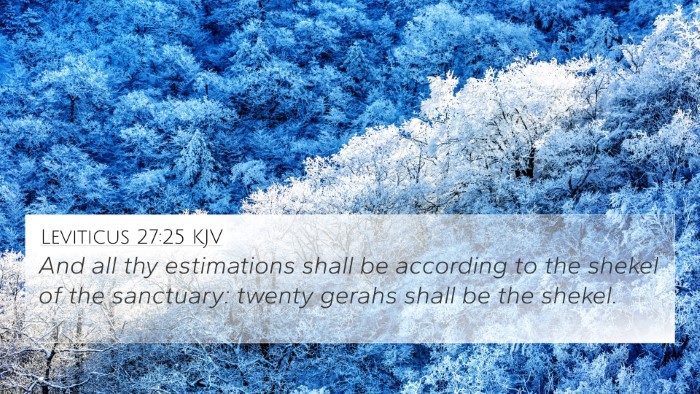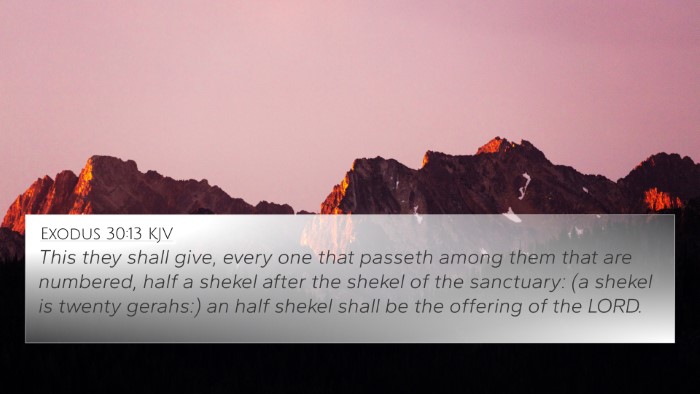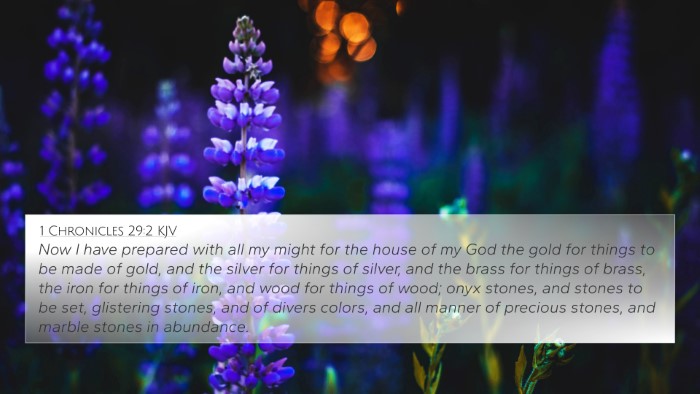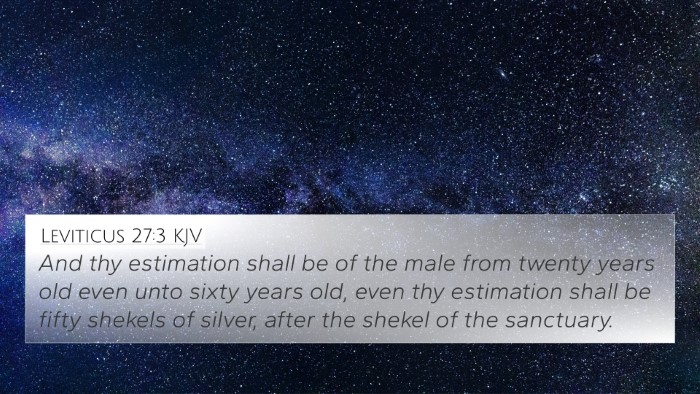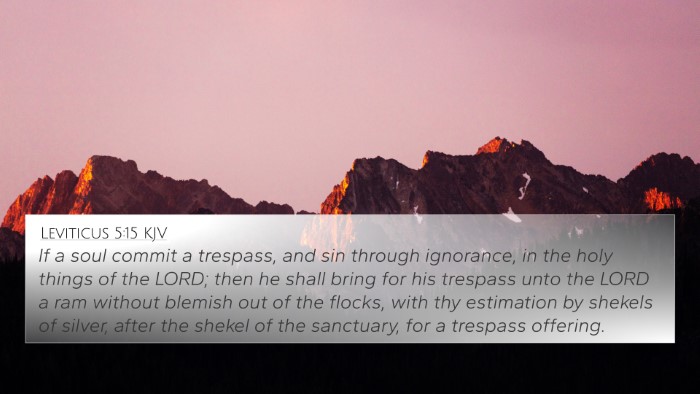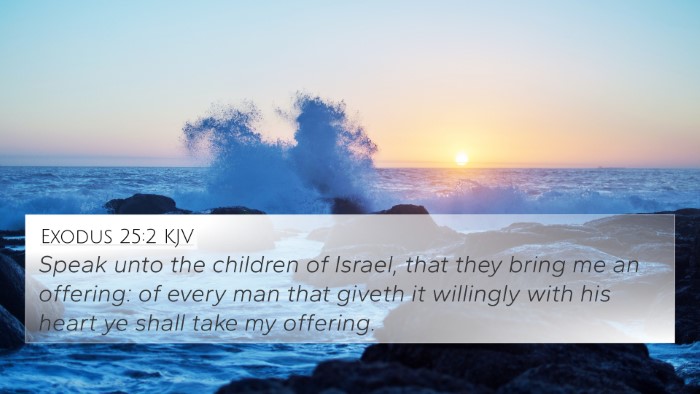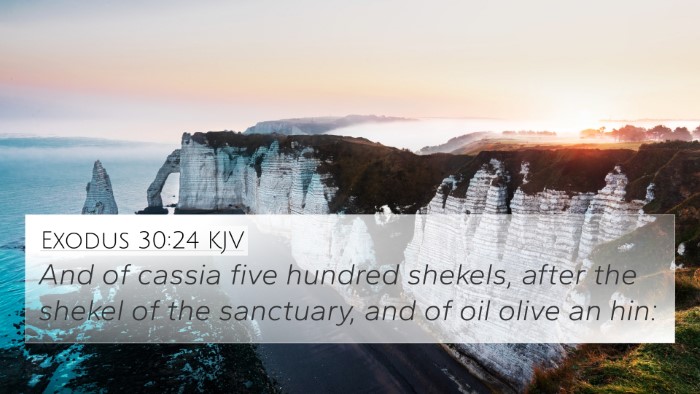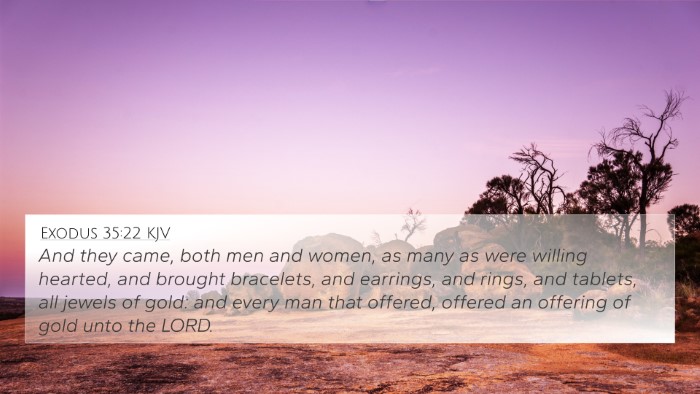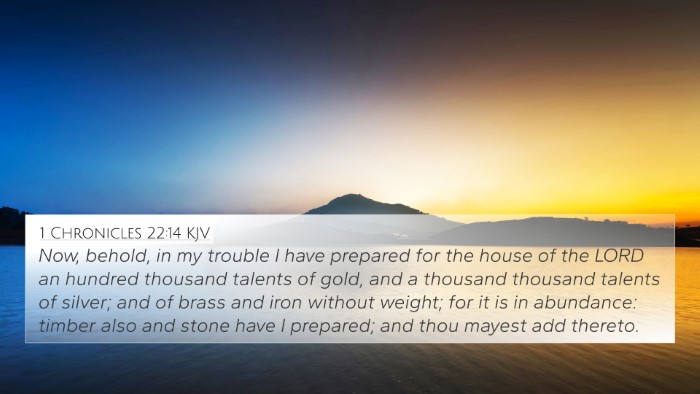Understanding Exodus 38:24
Verse: "All the gold of the offering that was used in all the work of the holy place, even the gold of the offering that was used for the things of the sanctuary, was twenty-nine talents and seven hundred thirty shekels, after the shekel of the sanctuary."
Summary and Interpretation
The verse Exodus 38:24 details the contribution of gold towards the construction of the Tabernacle and its furnishings. This reference connects to the overarching theme of holiness and dedication to God within the Israelite community.
Contextual Analysis
The context surrounding this verse encompasses the divine instructions given to Moses regarding the construction of the Tabernacle. The materials were to signify the beauty and worthiness of God's dwelling among His people.
Insights from Public Domain Commentaries
- Matthew Henry: He emphasizes the significance of the people's generosity and the specific mention of the gold indicates its importance in God's sacrificial system. It serves as a reminder of the worthiness of what we offer to God.
- Albert Barnes: Barnes points out that the precise measurement of gold illustrates the meticulous nature of the work conducted for God. It signifies that God deserves our best offerings, just as the exact specifications showcase His order and holiness.
- Adam Clarke: Clarke notes the symbolic nature of gold in the Bible, often representative of divinity and purity. He connects the gold used in the sanctuary to the necessity of holiness in the worship of God.
Cross-References
Exodus 38:24 can be linked with several other scriptures that enhance its meaning:
- Exodus 25:2: God commands the people to bring offerings for the Tabernacle.
- Exodus 30:11-16: Provides directions on the census and half shekel contributions, linking community giving to God’s commands.
- 1 Chronicles 29:2: King David’s preparations for the Temple, highlighting the importance of materials.
- Deuteronomy 15:10: The call to give generously and without a grudging heart connects to the spirit of giving in Exodus.
- Hebrews 8:5: Mentions that the earthly Tabernacle was a copy of the heavenly, affirming the significance of the offerings made.
- Matthew 6:21: "For where your treasure is, there your heart will be also," which emphasizes the importance of dedicating valuable resources to God.
- 2 Corinthians 9:7: Encourages believers to give with a cheerful heart, mirroring the willingness of the Israelites to contribute to God’s work.
- Philippians 4:18: Paul speaks of received gifts as a fragrant offering, suggesting that sacrifices for God's work are spiritually significant.
- Revelation 21:21: Refers to the streets of the New Jerusalem being pure gold, symbolizing the divine presence and beauty, paralleling the gold in the sanctuary.
- 1 Peter 2:5: Believers are called to be living stones in a spiritual house, connecting the material contributions of the Old Testament to the spiritual sacrifices of the New Testament.
Thematic Connections
Throughout the Bible, connections between verses reveal the continuity of God's purpose and holiness. Exodus 38:24 supports themes such as:
- The importance of sacred offerings to God.
- The significance of communal participation in worship and service.
- The beauty and worthiness of God’s dwelling place, both in the Old and New Testament.
- The recurring call for believers to offer their best to God as a reflection of their devotion.
Practical Applications
Understanding Exodus 38:24 can inspire modern readers in their spiritual lives by:
- Encouraging Giving: It shows the importance of generous contributions toward the work of God.
- Promoting Holiness: Reflecting on the holiness required in all worship and service to God.
- Building Community: Emphasizing that service to God often involves the collective efforts of a community.
In conclusion, Exodus 38:24 serves as a profound reminder of God's expectations for the offerings made to Him, the worthiness of our contributions, and the importance of maintaining a spirit of holiness and sacrifice in our worship. It connects the ancient practices of the Israelites with the ongoing call for dedication in the lives of believers today.

